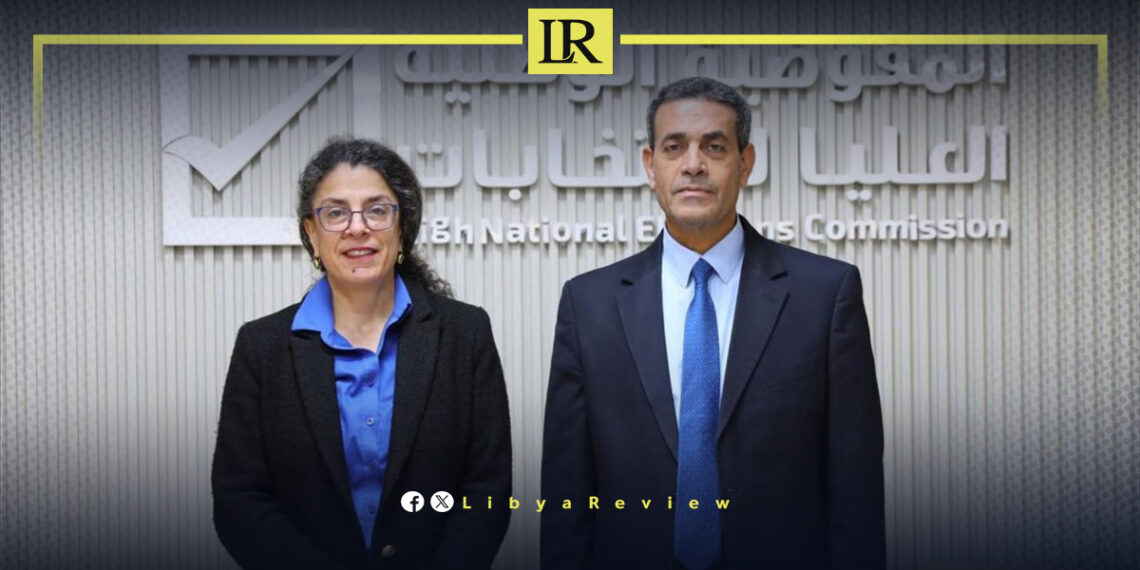On Saturday, the head of the High National Elections Commission (HNEC), Emad Al-Sayeh, held a meeting with Stephanie Khoury, Deputy Special Envoy of the UN Secretary-General to Libya, to discuss preparations for the second phase of municipal elections.
The meeting took place at HNEC headquarters in Tripoli and focused on the latest developments in election planning.
Discussions included the political climate’s impact on the elections and the challenges facing the UN Development Programme (UNDP) support project, which is assisting in logistical and technical preparations.
Both parties stressed the importance of urgent action to overcome obstacles and ensure successful elections.
For her part, Khoury reaffirmed the UN’s commitment to supporting Libya’s electoral process. She emphasized that the UN will provide technical and logistical assistance to ensure the elections are conducted with transparency and credibility. She also highlighted the role of municipal elections in promoting stability, local governance, and democratic development.
HNEC announced the closure of candidate registration, with voter registration continuing until March 14, 2025.
A total of 4,961 candidates are running under both individual and list-based systems, competing for 62 municipal councils. The commission noted a high level of participation, viewing it as an indication of Libyans’ strong commitment to democracy and self-governance.
Despite these advancements, security concerns remain. The HNEC acknowledged ongoing security threats, which have affected various stages of the electoral process. While the threats are limited, they reflect the broader political instability that continues to challenge Libya’s transition.
Since the 2011 uprising, Libya has faced political divisions, armed conflicts, and weak governance structures. Municipal councils play a vital role in providing essential services in the absence of a strong central government. However, past municipal elections have faced low voter turnout, logistical difficulties, and political disputes over electoral legitimacy.
With Libya still divided between competing political factions, municipal elections serve as a critical test of the country’s ability to hold fair and transparent votes. The success of this process could pave the way for broader national elections, but challenges remain in building political consensus and public confidence.


